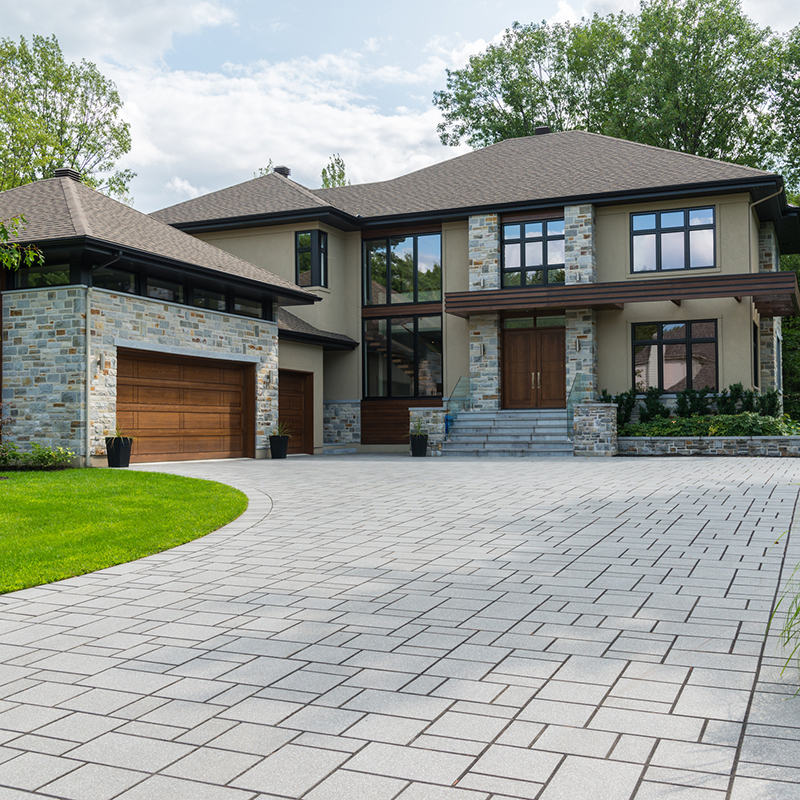
Stylish planters and a new mailbox will certainly boost your home’s curb appeal to anyone visiting, whether it’s a prospective buyer or friends stopping by for a get-together. But someone’s overall impression of the property can be driven by the condition of the driveway.
With cooler temperatures and shadier days, early fall is an ideal time to consider repaving an asphalt driveway or redoing your it altogether with a new surface. If you’re asking yourself how to tell if your driveway needs work, simply give it the eye test:
According to Garwood-based Driveway King Paving Company, driveways require repaving if they have: cracks wider than a quarter-inch, potholes, sunken areas, fading or discoloration and drainage issues. You can DIY certain problem areas by picking up supplies at your local hardware or home improvement store, but your best bet is to rely on the pros. Companies like Driveway King, Sol & Simon Asphalt Paving in Old Bridge and others are licensed and experienced in this type of work, use state-of-the-art equipment, offer long-term maintenance and comply with all regulations (did you know some towns require a permit to resurface a driveway?).
“While some property owners may attempt to save money by opting for DIY paving or hiring inexperienced contractors, it often leads to costly repairs and premature deterioration,” says Sol & Simon. “Professional asphalt paving services offer cost-effective solutions in the long run. They provide a quality installation that reduces the need for frequent repairs and maintenance. By investing in professional services upfront, you can save money on future repairs and enjoy a durable and long-lasting surface.”
Below are three popular driveway surfaces that are suitable for New Jersey’s climate.

Asphalt
Blacktop. It’s perhaps the most common road and driveway surface in New Jersey because of its affordability and durability. If installed properly (excavating, grading) and maintained with regular sealcoating, an asphalt driveway can last for as many as 30 years. Though it doesn’t last as long as concrete, asphalt is one of the most recycled materials on the planet. Again, if properly sealed it can withstand New Jersey winters and de-icing agents—just watch those large cracks, which can expand when water freezes. And while we’re talking about seasons, summer is a tough time for asphalt driveway owners: The surface can get very hot, so it’s not ideal for bare feet or your pet’s paws.

Pavers
Also known as a block-paved driveway, this style incorporates “blocks”—these can be brick, stone or other materials. The pavers are typically laid onto a compacted soil and stone base with sharp sand as a final layer. The style will give any driveway a unique appearance, and they’re far less slippery than asphalt and concrete; if you have a sloped driveway that’s prone to icing during winter, this might be a viable option. Also unlike asphalt and concrete, pavers are less likely to crack under heavy weight. The drawback, however, is that the stones can shift when water between the pavers freezes. All the nooks and crannies can be tough to clean as well, whether you’re clearing snow, leaves or dirt.

Stamped Concrete
This style has the aesthetic of stone, brick or flagstone—but it’s a more affordable option. It’s highly customizable, meaning homeowners can select different shades and patterns. As far as maintenance, the surface is easy to keep clean with regular sweeping, blowing and rinsing with a hose. But buyer beware: Concrete is durable, but it’s prone to cracks—especially if you’re consistently parking a heavy truck on it. De-icing salts can damage it as well, so consult with your driveway professional about high-quality sealants.
What’s your driveway material of choice and why? Share your picks (and pics!) with us on Instagram @njhomemag.